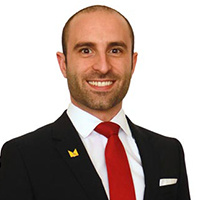South Gate Felony Lawyer, California
Sponsored Law Firm
-
 x
x

Click For More Info:
-
Lessem, Newstat & Tooson, LLP
3450 Cahuenga Blvd W Unit 102 Los Angeles, CA 90068» view mapCriminal Defense Your Fight Is Our Fight.
Our team is ready to represent individuals in need of strong, aggressive personal injury or criminal defense as it pertains to one's mental health.
800-805-4781
Andrew Marc Stein
✓ VERIFIEDCriminal, DUI-DWI, Felony, Misdemeanor
Andrew M. Stein has been practicing law for over thirty years and has specialized in the area of criminal law and civil rights. He received his Bachel... (more)
Angela Rena Swan
✓ VERIFIEDCriminal, Divorce & Family Law, Family Law, DUI-DWI, Felony
Ms. Swan has been licensed to practice in the state of California since 2001 and helps people with Divorce & Family and Criminal law matters.
Daniel Moaddel
✓ VERIFIEDCriminal, DUI-DWI, Misdemeanor, Felony, Immigration
Moaddel Law is a criminal defense firm that provides comprehensive service from start to finish.
Daniel Moaddel is a criminal defense attorney serving Los Angeles, California.
Alex Meza Moisa
Family Law, Felony, Consumer Rights, Car Accident
Status: In Good Standing Licensed: 31 Years
Craig M. Sturm
Criminal, DUI-DWI, Felony, Misdemeanor, Car Accident
Status: In Good Standing Licensed: 22 Years
FREE CONSULTATION
CONTACTEdward Albert Trabin
Wills, Trusts, Divorce & Family Law, Felony
Status: In Good Standing Licensed: 68 Years
FREE CONSULTATION
CONTACT J. Tooson Los Angeles, CA
J. Tooson Los Angeles, CA Practice AreasExpertise
Practice AreasExpertise




